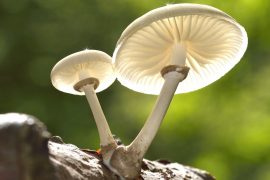
Matcha tea relieves symptoms of depression
Matcha tea is known for many health benefits such as boosting mental performance, promoting heart health, and supporting weight loss. Researchers at Kumamoto University in Japan have now taken a closer look at the anti-depressive effects of Matcha tea.
Using a mouse model, the experts found that Matcha powder activates neuronal connections through which dopamine travels to areas of the brain and body. In certain mice, symptoms of depression improved.
“Depression is the most-prevalent psychiatric disorder in the world, and the number of patients with depression is continuously increasing worldwide,” wrote the study authors. “Although there are individual differences in the onset of depression, its pathogenesis is thought to involve a reduction in dopaminergic function in the brain.”
“Postmortem brain analysis and positron emission tomography (PET) radioligand studies in humans have shown that dopamine D1 receptor expression and function are significantly reduced in the patients with major depressive disorder.”
Previous research has shown that matcha tea consumption improves anxiety-like behavior in mice by activating dopamine D1 receptor signaling. The Kumamoto team set out to investigate whether the same dopamine boost may also improve symptoms of depression.
The researchers set out to investigate the effects of Matcha tea powder in socially isolated mice. They subjected stress-tolerant and stress-susceptible mice to social isolation. In mice that were susceptible to stress, a dose of Matcha tea appeared to reduce levels of depression.
“Matcha tea reduced the immobility time only in stress-susceptible mice that experienced greater stress from social isolation, and exhibited higher depression-like behavior, in comparison to the stress-tolerant mice,” explained Dr. Yuki Kurauchi.
When the experts analyzed the brain activity of the stress-susceptible mice after they had consumed the Matcha tea, they found higher neural activity and dopamine production.
“These results suggest that Matcha tea powder exerts an antidepressant-like effect by activating the dopaminergic system of the brain, and this is influenced by the mental state of the individual,” said Dr. Kurauchi.
The study is published in the journal Nutrients.
–—
By Chrissy Sexton, Earth.com Editor
Check us out on EarthSnap, a free app brought to you by Eric Ralls and Earth.com.













